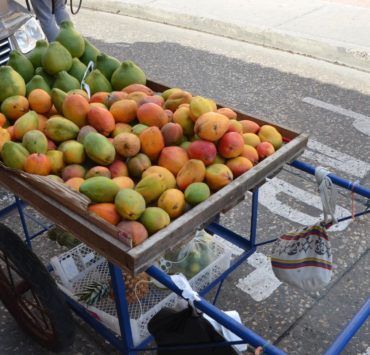
St. George’s bell was gone.
The cleaning woman, an Albanian who had been living in the village for almost eighteen years, one of the first to cross the border, in search for work, came all the way down to Peloponnese, mostly on foot and occasionally hitch-hiking, noticed it first. She went to clean up and prepare the chapel for the annual liturgy on St. George’s name day, April 23rd.
The priest, terribly shocked at the news, ran immediately to the cafenion where the village men were enjoying their first coffee in the open. (Spring was really here now and even a Greek winter can cause depressions.)
St. George’s bell had been ringing since 1907, and it was the village students’ present to the newly built chapel, financed mainly by their collection of donations. It was from a time when students wore uniforms and caps and needed almost half a day to arrive at the village by horse carriage from Athens, nowadays just a one and a half hour drive away.
During the German occupation, St. George’s bell rang to warn the partisans whenever the German soldiers mobilized towards the hills where the partisans were hiding and from where the chapel watched over the village. The men now in the cafenion, were the sons and grandsons of those men sent running scared up the hills when the bell spoke to them.
A spontaneous meeting was held in the cafenion. A few phone calls and a few more of the village elders joined the angry round. It didn’t take long and, as always happens on these occasions, the foreigners were blamed. The Albanians had been the usual suspects for years and years. But they were not illegals anymore, didn’t sleep under the orange trees in improvised tents, didn’t have to steal everything not nailed down and sell it in order to survive till the next job appeared. No, the Albanians now had labor permits and lived in houses, their kids went to school here and were actually the reason, a few years ago, why the village elementary school was not closed down. The village birth rate had dipped too low. Blame it on the stress of modern times.
Spirits were already somehow calmed. The new illegals, the young Africans who usually hung around in the main district town, were soon also disqualified as bell thieves. The local teenagers explained that they were too well controlled by their own Mafia, which was not interested in bells but in whores and pirated CDs and DVDs. They knew this of course, because they were grateful customers themselves.
There was just one possibility left: the Gypsies (no one called them Romani here, not even themselves).
Yes, the Gypsies controlled the scrap metal market and since the prices of copper and iron skyrocketed, the Gypsies had ransacked, bought, took, or dismantled anything they could. Two neighbors went to court last month, accusing each other of stealing the iron posts that had marked the shared border of their properties, before discovering that the posts had been stolen, like everybody else’s in the area.
The metal prices shot up after the real estate crisis in the U.S. for reasons that no one in this cafenion could really explain; it’s just the way capitalism works
The villagers agreed that St. George’s bell which had been ringing for this village ever since 1907 likely landed in capitalism’s melting pot, together with the iron posts marking land ownership. And not only the communists in the cafenion laughed at this joke.
It was agreed that a new bell would be ordered at the best bell foundry in the prefecture. Who knows, something from the old bell might find its way into the new one. It seems our world is quite small.
Previsouly published in qarrtsiluni online magazine.
Magda Kapa, born in Greece and now living in northern Germany, worked as a freelance screenwriter and Modern Greek and English teacher. Her first poetry collection All the Words was published by Phoenicia Publishing. She is also a photographer and blogs http://notborninenglish.wordpress.com/ and tweets as @MagdaKapa.







